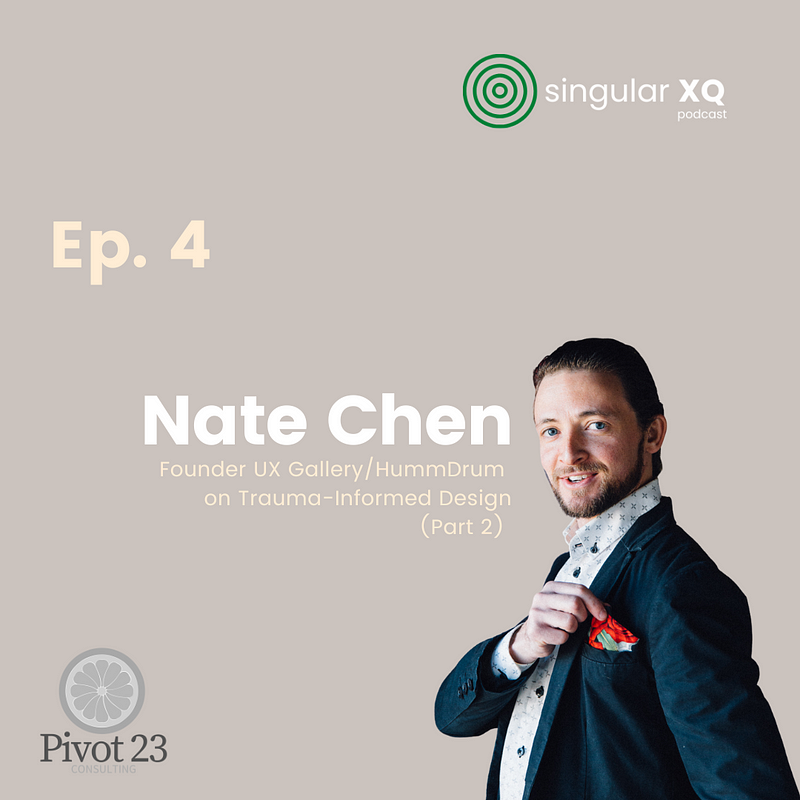Singular XQ Ep 4: Nate Chen, Trauma-Informed Design (Part 2)
Episode 4 of Singular XQ has dropped and it's Part 2 of my conversation with Nate Chen.

Episode 4 of Singular XQ has dropped and it's Part 2 of my conversation with Nate Chen.
We talked about — -among many other things — trauma-informed design.
Truly transforming your approach to design to make it “trauma-informed” is a process and not something you can “do.” There are several obstacles, most of them cultural. In enterprise design, for example, it can be difficult to introduce the idea of trauma sensitivity. Frequently, announcing that is a goal or a design principle can create resistance and backlash.
However, how might you show and not tell your collaborators how trauma-informed design works? What are some micro-successes you can make in first transforming yourself to be more trauma-informed as a designer and/or researcher and second transforming the products, teams, and organizations your serve?
Take it slow. Here are 3 small principles to embrace right now on your next project. Better still, try to keep one principle at the center of your next project. It will make the principle second nature.
- Be transparent. Include clear, simple explanations of how CTAs will affect the user.
- Resist “black hat” design. We all need higher conversions to drive revenue, and there are ways to do it that use consumer anxiety to drive conversions: ticking clocks, time is running out, act fast, urgency. Not only is it insensitive and shows questionable ethics, its not good business either. While it is true that this does drive conversions immediately, research shows that it does not create CLTV, customer-lifetime value. Over time, it will reduce repeat business.
- Wherever you can provide choice but make choice easier. Daniel Simon wrote a great piece here about the paradox of choice. Our job is to provide choices to respect the dignity and agency of the people who arrive at our experiences. But we also have to ease the anxiety of choice by making a quieter environment.




